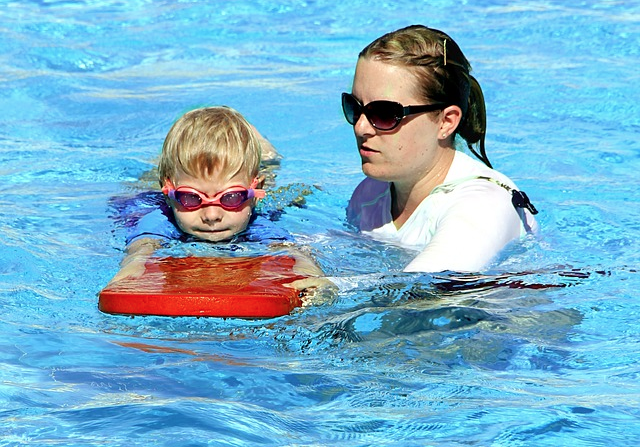
What is it?
Swimming is the practice of moving oneself through water in various manners - it is one of the public's most popular recreational sports, and is often included in compulsory education in schools, particularly for Primary age students.
What does it involve?
The basics of swimming involve learning the various established styles of stroke used to move through the water, coordinating all the body parts to work together for the most efficient movement. Once an individual is confident in the water there are a number of sporting activities that involve swimming, and many people find it relaxing to swim in their spare time.
Why do it and what are the benefits?
The physical benefits of swimming are well documented - it exercises the majority of the body and can help with posture and stress levels as well as being a lot of fun. Swimming is also fairly instinctual for humans, so it's easy to pick up once you've mastered the basics, and is a great life skill.
What equipment do we need?
Swimwear is a must for every participant, as well as towels and toiletries for showering and drying off after the event. Hats are often compulsory in pools while conditions such as veruccas can render a student unable to participate.
Who is it suitable for?
Students of any age can go swimming, but be aware of the varying levels of skill you are likely to find in a group - not everyone will necessarily have the same experience, and will therefore need different teaching.
Costs?
Costs of entry to swimming pools and booking lessons will vary between establishments. General admission is normally under £5 for a reasonable size pool, but make sure to check out the varying prices in your area to get the best deal for a group!
Issues/Things to think about?
Beginner swimmers (especially young children) should never be left unsupervised while swimming as you can quickly lose control in the water when inexperienced. Pools should have trained lifeguards on duty at all times in case of emergency.
How do we include?
Physically disabled individuals can swim reasonably easily assisted by various buoyancy aids, and other types of disabilties are also often catered for - swimming is a reasonably good activity to include everybody in if you choose a venue with the right set up for the needs of your group.
Doing it abroad?
Swimming is popular all over the world, and its extremely unlikely you will find a destination without a place to swim nearby. Countries with warmer climates also tend to have pools as part of accommodation, so if you are visiting such a place you may not have to go far to access a swimming pool at all. It is well worth ensuring you are happy with safety equipment supporting your activity, plus checking the amount of supervision and level of expertise of the staff on duty. Knowing emergency procedures and where life-saving equipment is located is also a very good idea and can save vital seconds in the case of an emergency.
Main website:
Visit the Amateur Swimming Association - http://www.swimming.org (link is external) for some great general information and to find out more about the School Swimming Charter - but always consult a venue's individual website for the venue or provider's specifications.





